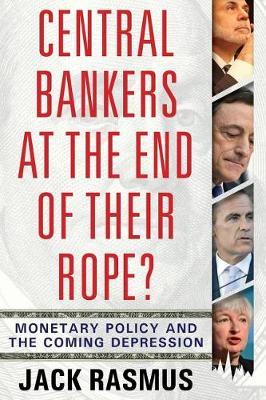Central Bankers at the End of Their Rope?

Central Bankers at the End of Their Rope?
The book describes the fundamental causes of the breakdown and emerging crisis of central banks-with primary focus on the Bank of England, the Eurozone's ECB , US Federal Reserve, the Bank of Japan, and the People's Bank of China. The central theme is that central banks, as constituted today, are not only failing their basic functions-in the process becoming more desperate in experimenting with new measures and policies-but have become increasingly the vehicles of the interests of private bankers and investors. Central banks must therefore be democratised to represent the entire economy and not just bankers and investors. Proposals for institutional restructuring are offered as means to ensure central bank independence of both banker-investor interests as well as politicians.
PRP: 178.33 Lei
Acesta este Prețul Recomandat de Producător. Prețul de vânzare al produsului este afișat mai jos.
160.50Lei
160.50Lei
178.33 LeiIndisponibil
Descrierea produsului
The book describes the fundamental causes of the breakdown and emerging crisis of central banks-with primary focus on the Bank of England, the Eurozone's ECB , US Federal Reserve, the Bank of Japan, and the People's Bank of China. The central theme is that central banks, as constituted today, are not only failing their basic functions-in the process becoming more desperate in experimenting with new measures and policies-but have become increasingly the vehicles of the interests of private bankers and investors. Central banks must therefore be democratised to represent the entire economy and not just bankers and investors. Proposals for institutional restructuring are offered as means to ensure central bank independence of both banker-investor interests as well as politicians.
Detaliile produsului











